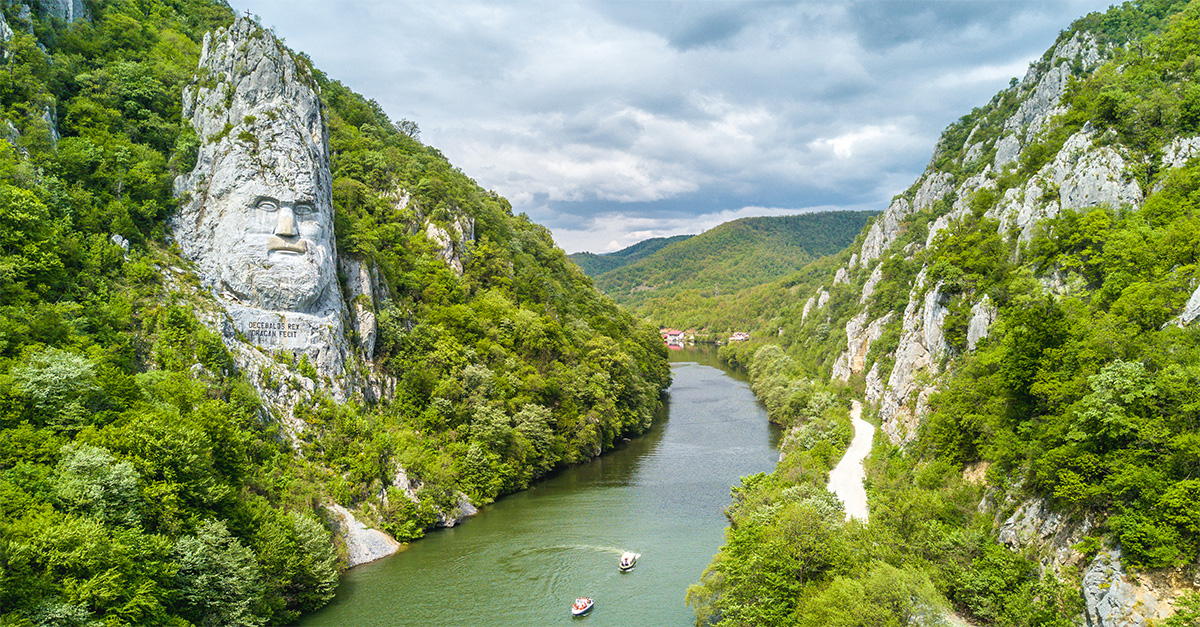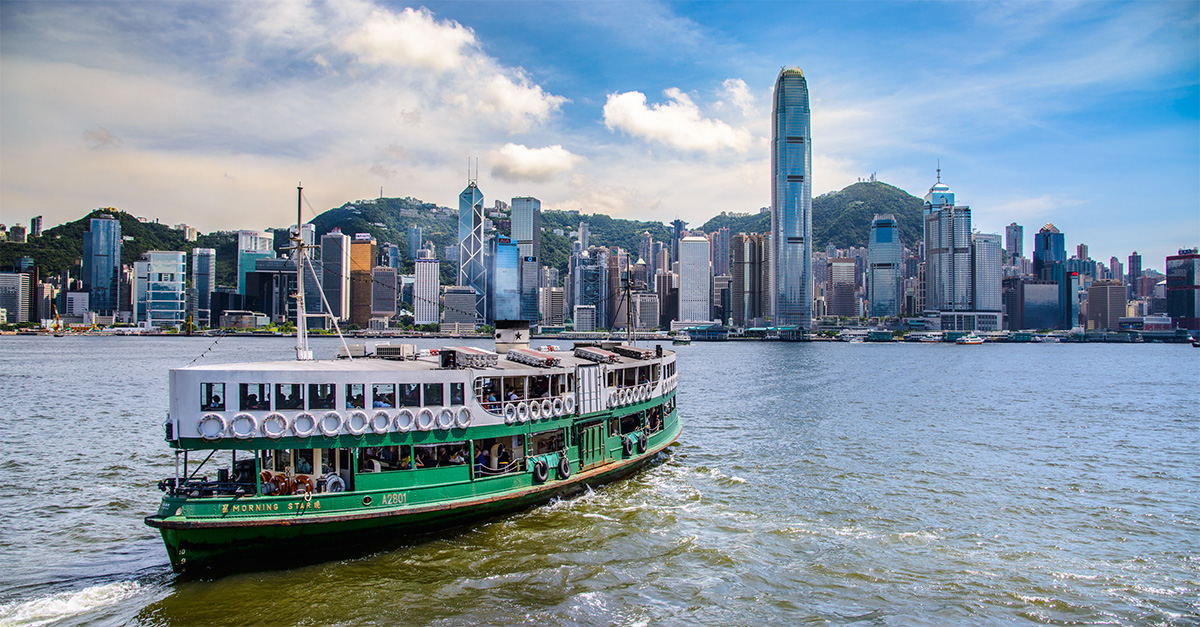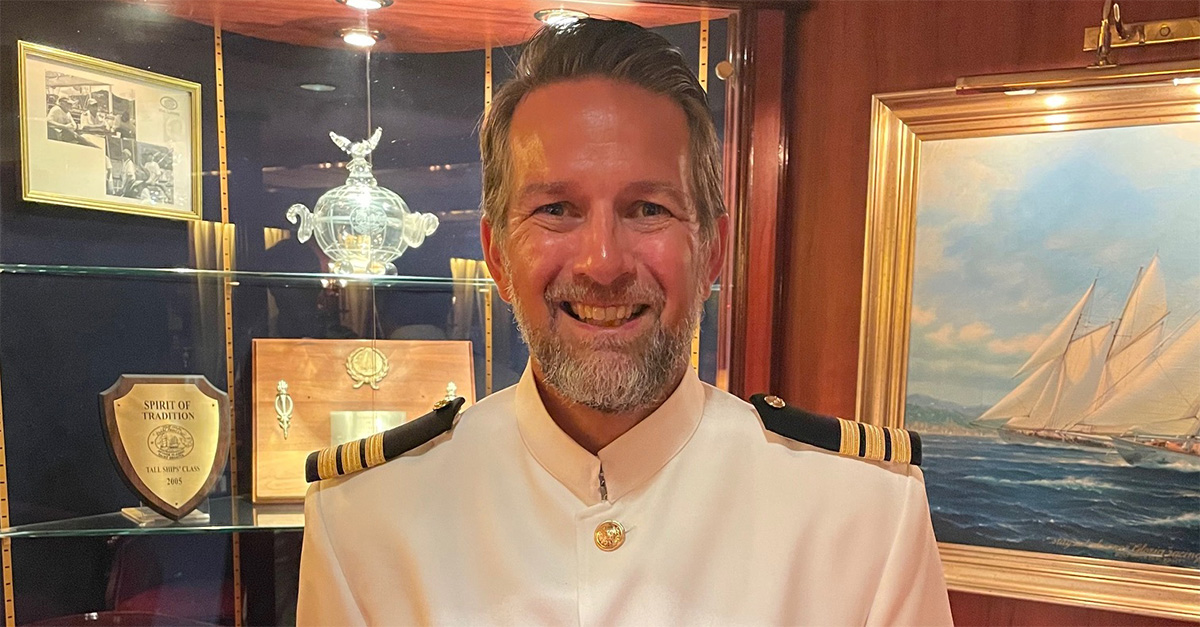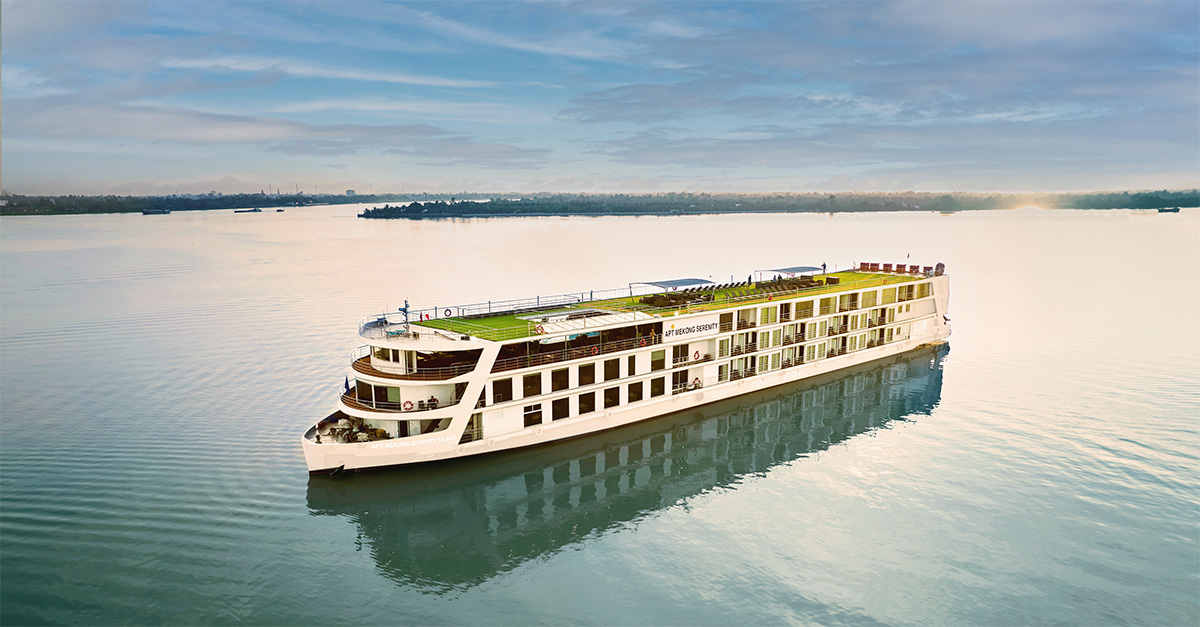Australia’s Sunshine State is home to a growing number of indigenous-owned and run experiences that support its rainforests and reefs, says Qin Xie
Click here to download and save as PDF
A hawksbill turtle splashes to the surface, its tiger-like patterned shell unmistakably crisp against the moss-green backdrop. Carefree, it bobs on the water for a moment before dipping back down and gliding under the jetty I’m standing on.
As I look down, a school of vibrant blue damselfish darts past while a couple of trumpetfish shyly linger just beyond, their silver colour rendering them almost invisible. I’ve just set foot on Green Island, a rainforest-covered coral cay about 45 minutes off the coast of Queensland via a bumpy boat ride from Cairns.
This part of the Great Barrier Reef is one of the easiest to access from the mainland and, judging by what I’ve seen so far, its residents aren’t shy about showing off the abundant marine life. I could watch this fascinating display for hours but I actually came to Green Island for the Wunyami cultural tour, one of the new indigenous-owned and run experiences in the region offering an authentic slice of Aboriginal culture.
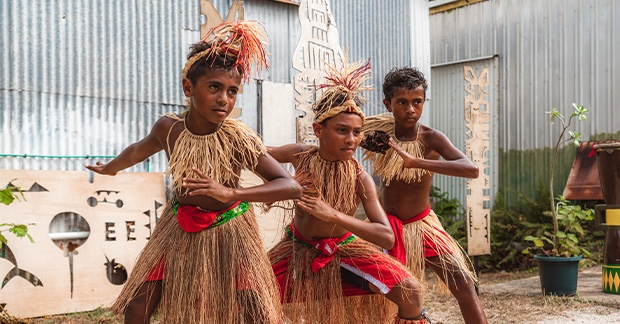
It’s a particularly interesting add-on for those who don’t have the time or resources to venture farther north into Queensland’s vast tropical rainforests, and who want to do a bit more than just see the Great Barrier Reef.
My tour begins with a traditional dance for protection. Some of the buff-banded rails that nest on the island are a little territorial but it’s the spirits that I need to be wary of here, according to my guide Jiritju Fourmile, from the Gimuy Walubara Yidinji tribe.
“Indigenous people believe that when people die, they simply transform into something else rather than disappear,” he tells me. “That’s why we never say goodbye – always see you later. Those spirits are all around us in the rainforest now and the protection helps to stop those spirits from attaching onto you.”
My tour begins with a traditional dance for protection
As we walk into the rainforest, Fourmile starts pointing out different plants and explaining their uses. Coastal hibiscus, identifiable by its heart-shaped leaves, edged with white dots, is one of the most useful trees on the island.
A gel with a similar consistency to aloe vera found under its bark can be used to treat burns, for example, while the bark itself can be stripped and woven into twine. Its branches are used for drills that, under the expert hands of an Aboriginal elder, can be used to start a fire in minutes.
I give this a go and barely manage a half turn before the stick topples over; Fourmile takes over and fine sawdust is soon flowing from the base. Moments later, the drill starts to smoke.
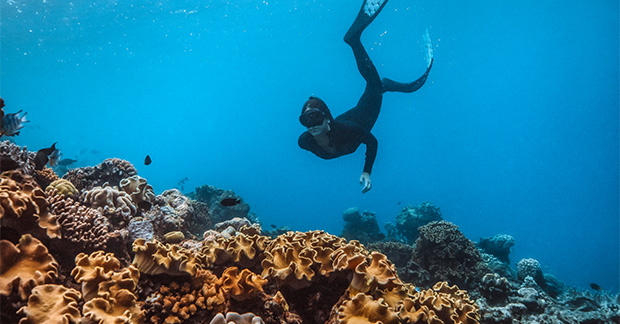
It seems I’m getting a crash course in rainforest survival and it’s hard not to be in awe – Bear Grylls has nothing on Fourmile. During our walk, talk turns to Australia’s colonial past; it’s a complex issue but Fourmile doesn’t shy away from it.
As in other parts of the world, Australia has been making efforts to address difficult aspects of its history. Depending on who you’re speaking to, it’s either happening too quickly or not quickly enough. The scar tissue runs deep but progress is being made, especially in tourism.
Almost everywhere you visit in Australia, you’ll see or hear an acknowledgement of the traditional owners. Land is also being handed back to indigenous people, allowing them to return to being custodians as they have done for millennia.
One of the most significant examples of this is the Daintree Rainforest, which was handed back to the Eastern Kuku Yalanji people in 2021.
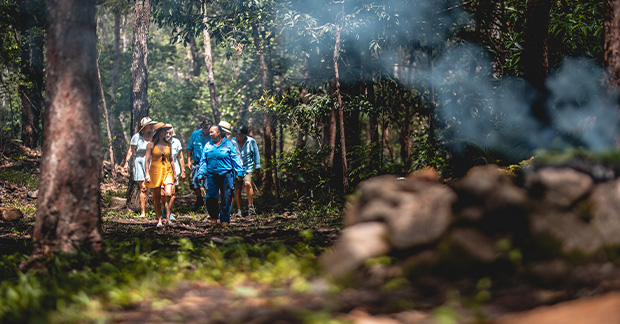
Social change
While there is still room for improvement, the crucial next step in this movement for social change is the growth of indigenous-owned businesses, such as the Wunyami tour – and that’s where responsible tourism comes in.
Indigenous-led tours are an important part of the tourism offering in Queensland. Companies like Dreamtime Snorkel & Dive, for example, already offer experiences where indigenous guides work in tandem with marine biologists so visitors can learn about what they’re seeing under the water as well as the importance of the reefs for Aboriginals.
Responsible tourism experiences like these add a depth and authenticity
They also run training programmes for indigenous youths to help them get employment, injecting much-needed wealth into long-disadvantaged communities.
“The best-case scenario is for the land to be handed back as an Indigenous Protected Area,” says Fourmile. This, he explains, allows indigenous people to live freely, whether that’s hunting animals for food or staging controlled burns to manage the land.
When we reach the end of the tour, Fourmile blesses me again, his dance taking on a heartfeltness that I hadn’t appreciated earlier. I certainly got more than I bargained for. But when you have a guide who’s as knowledgeable and passionate as Fourmile, you realise that responsible tourism experiences like these add a depth and authenticity that you’d be hard-pressed to find anywhere else.
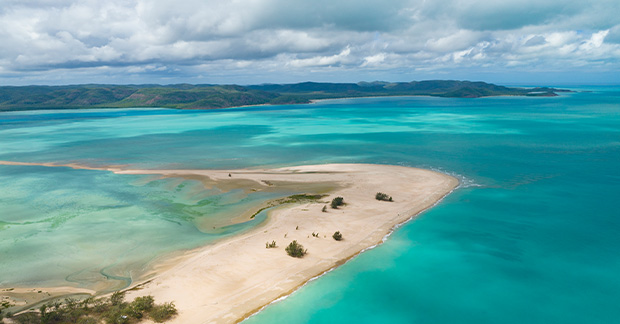
Indigenous-owned tours from Cairns
Hands On Country Eco Tour
After a short river cruise through Trinity Inlet to Hill Creek, guests are blessed in a traditional smoking ceremony before being led on a guided walk in the rainforest to discover its plants and their medicinal and culinary use.
mandingalbay.com.au
A Strait Day
Providing a rare chance to see the remote Torres Strait Islands at the tip of Australia, this one-day tour includes a scenic flight over Far North Queensland and guided visits of Thursday and Horn islands.
straitexperience.com.au
Daintree Dreaming Traditional Aboriginal Fishing
Explore Mossman Gorge, the gateway to Daintree Rainforest, and the mangroves and mudflats of Cooya Beach, before trying fishing the traditional way.
downundertours.com/aboriginal-tours
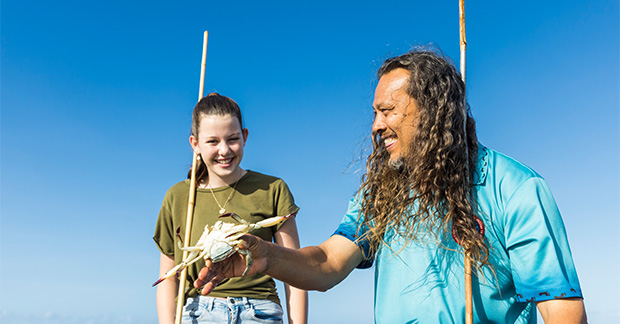
Book it
A seven-night break in Cairns, flying with Singapore Airlines from Heathrow on September 8, costs from £2,679 with If Only. The price is based on two adults sharing a Harbour Room at Crystalbrook Flynn on a room-only basis, and includes private car transfers.
ifonly.net
PICTURES: Tourism Tropical North Queensland.
Read more
How to sell a budget-friendly family holiday to Australia
Inside the culture-driven hotels offering millennial travellers real experiences
5 ways to explore history, adventure and wine in Perth

